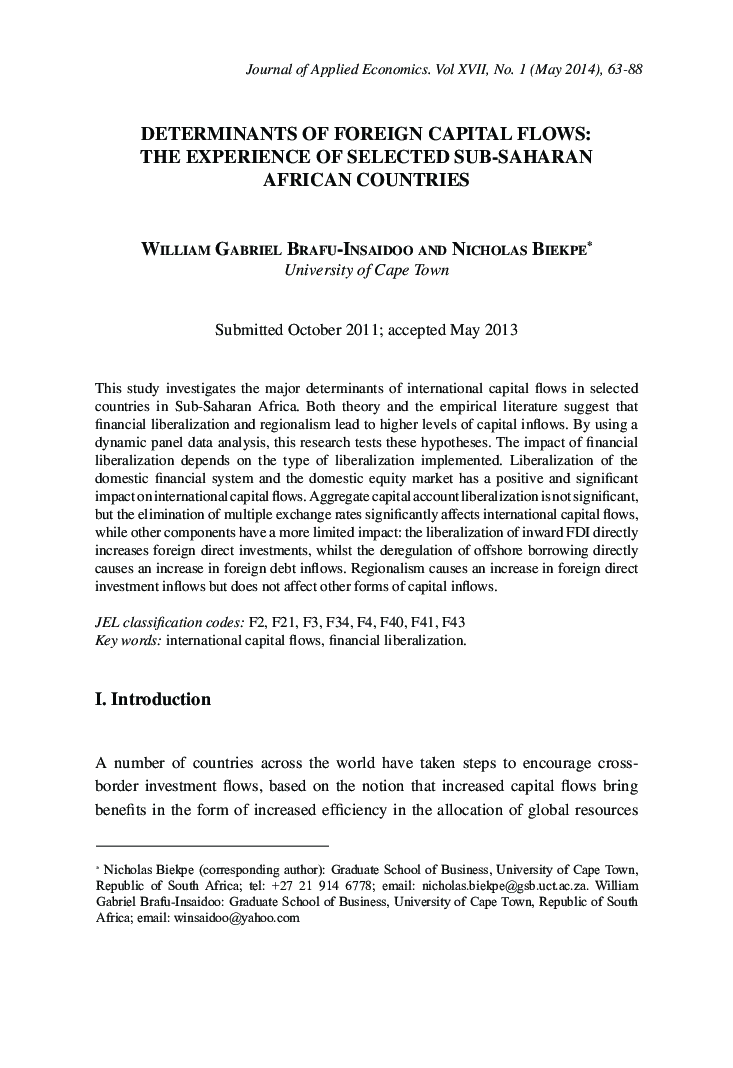| Article ID | Journal | Published Year | Pages | File Type |
|---|---|---|---|---|
| 7356215 | Journal of Applied Economics | 2014 | 26 Pages |
Abstract
This study investigates the major determinants of international capital flows in selected countries in Sub-Saharan Africa. Both theory and the empirical literature suggest that financial liberalization and regionalism lead to higher levels of capital inflows. By using a dynamic panel data analysis, this research tests these hypotheses. The impact of financial liberalization depends on the type of liberalization implemented. Liberalization of the domestic financial system and the domestic equity market has a positive and significant impact on international capital flows. Aggregate capital account liberalization is not significant, but the elimination of multiple exchange rates significantly affects international capital flows, while other components have a more limited impact: the liberalization of inward FDI directly increases foreign direct investments, whilst the deregulation of offshore borrowing directly causes an increase in foreign debt inflows. Regionalism causes an increase in foreign direct investment inflows but does not affect other forms of capital inflows.
Related Topics
Social Sciences and Humanities
Economics, Econometrics and Finance
Economics and Econometrics
Authors
William Gabriel Brafu-Insaidoo, Nicholas Biekpe,
